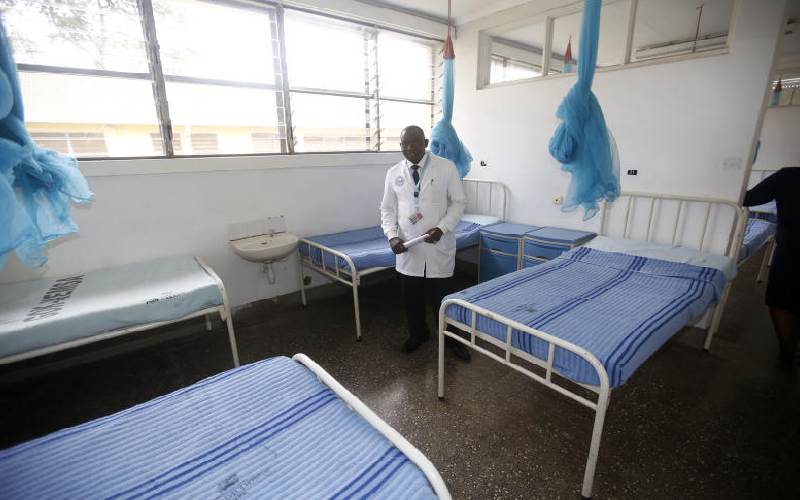×
The Standard e-Paper
Stay Informed, Even Offline

Inside an isolation ward at the Rift Valley Provincial General Hospital, Nakuru. Facilities across the country are bracing for coronavirus outbreak. [Kipsang Joseph, Standard]
Interior Cabinet Secretary Fred Matiang’i and his health counterpart Mutahi Kagwe have sweeping powers that they can use if the coronavirus crisis starts to spin out of control.